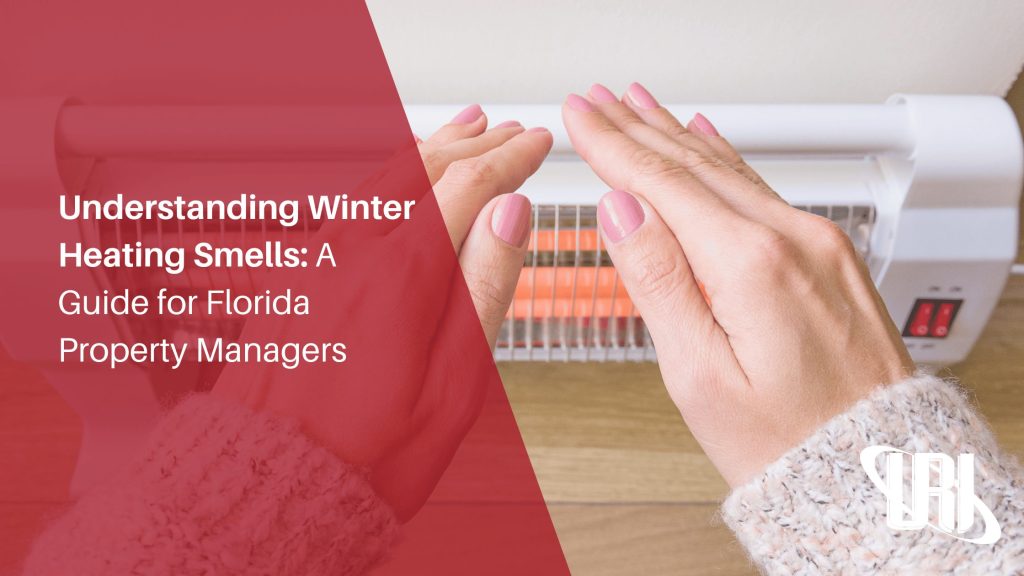
As a property or facility manager in the Sunshine State, you’re likely well-acquainted with the numerous seasonal challenges that come with managing properties. While Florida’s winters may be mild compared to many other states, the use of heaters during the cooler months can sometimes lead to peculiar odors that tenants or building occupants might find disconcerting. In this blog post, we will explore the various heating smells that property managers in Florida may encounter and provide insights into their causes and solutions.
Dust and Musty Odors
One of the most common smells associated with turning on the heating system after a long period of inactivity is the familiar scent of dust and mustiness. These odors typically arise when the heater’s air ducts, vents, and radiators have collected dust and other debris over time. As the heater warms up, it can burn off this accumulated dust, resulting in a musty smell.
Solution: To mitigate dust and musty odors, it’s advisable to schedule regular HVAC system maintenance, including air duct cleaning and filter replacement. This can significantly reduce the buildup of dust and ensure a more pleasant living environment for your tenants.
Burnt or Electrical Odors
In some cases, property managers may encounter burnt or electrical odors when the heating system is turned on. These odors can be concerning to tenants and may indicate a potential issue with the heating unit itself. The source of these smells could be overheating components, electrical malfunctions, or the presence of dust near electrical circuits.
Solution: If you or your tenants detect burnt or electrical odors, it’s crucial to address the issue promptly. Consult a licensed HVAC technician to inspect and repair the heating system. Ignoring these odors could lead to potential safety hazards or costly heating system repairs.
Musty Odors from Humidity
Florida’s climate is characterized by high humidity, especially during the warmer months. When the heating system is turned on during the winter, it can exacerbate the musty odor caused by mold or mildew growth in the HVAC system or around the property. Mold and mildew thrive in humid environments, and they release spores that can be spread by the heating system.
Solution: To combat musty odors related to humidity, it’s important to maintain proper humidity levels within the property and ensure the HVAC system is free from mold and mildew. Regular inspections and cleaning of HVAC components can help prevent the growth of these unwanted contaminants.
Burning Smells from Heating Elements
In some cases, a burning smell may be noticed when a heating element is turning on after a long period of inactivity. This smell can be attributed to the accumulation of dust or debris on the heating element or in the heater’s combustion chamber. The smell is often temporary and dissipates as the element warms up.
Solution: Regular maintenance and inspection of the heating system can help prevent this issue. Cleaning and servicing the heating elements as part of routine maintenance can help ensure a clean and odor-free start to the heating season.
As a property or facility manager in Florida, understanding the various heating smells that tenants or building occupants may encounter during the winter months is essential for maintaining a comfortable environment to live, work, or play. Addressing these odors promptly and proactively can help minimize complaints and ensure the safe and efficient operation of the heating system.
Regular HVAC system maintenance, cleanliness, and humidity control are key to reducing and preventing these odors. If you or your tenants ever detect unusual or persistent smells related to the heating system, it’s important to consult with a qualified professional to diagnose and resolve the issue promptly. Our team of commercial, industrial, and multi-family property restoration experts at Unlimited Restoration, Inc. (URI) are here to help. Call our 24/7 Emergency Response Hotline for assistance: 888.327.9664. By staying informed and taking preventative measures, you can ensure a pleasant and worry-free winter season for your tenants and building occupants.
